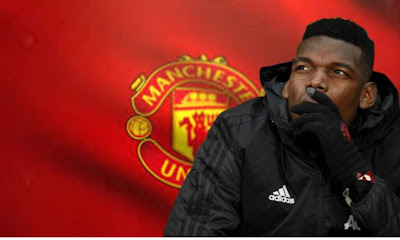The player is never bigger than the manager. That's not exactly true any longer, is it? Player power is on the rise in football. The modern-day footballer wields a lot more influence over the club than ever before. But what exactly is behind it? Can it be stopped?
Jose Mourinho last week broke his silence after his sack from the Manchester United hot seat in December. Speaking to beIN Sport, Mourinho admonished clubs to put structures in place, so players are never in a position where they feel more powerful than their managers. Mourinho, of course, has tasted firsthand the effect player power has on a manager.
The Portuguese has been sacked in his last three jobs, and in each of those instances, he fell out with the ‘big players’ at the club. At United, he had a run-in with Paul Pogba, the club’s most expensive signing. Pogba at times openly criticised Mourinho’s approach to certain games, saying United should be playing a more attacking style. Mourinho wasn’t too pleased and to make matters worse, Pogba began to deliver subpar performances.
Mourinho did what any other brave manager would do: he put Pogba on the bench. The problem was without the Frenchman, United looked rather clueless in possession and Pogba was still his best playmaker, the situation regardless. It continued that way for weeks until Mourinho got the sack.
Yes, Mourinho wasn’t getting results, but his sack might not entirely have had to do with the lack of results. Nobody likes to see an £89m man on the bench, especially not the club hierarchy. In retrospect, had United been playing well without Pogba, things would have been more interesting. Still, you’d feel if it ever came to a “me or him”, Mourinho would have lost, anyway.
Whether we fans like it or not, a football club is no more than a business to those who run it. At the end of the day, the goal is to make a profit, and having your top player disgruntled is bad for business, even if he is the one culpable.
Nowadays, when a player underwhelms, the head coach more often than not gets the heat. The footballer himself never gets much criticism directed his way, so he believes may be the problem truly is with the manager, not him. Mourinho makes a valid point on a need for clubs to take measures to protect the manager.
Looking at clubs like Manchester City and Liverpool, you never get the feeling there ever could be any such player-manager problems, at the moment. Why? Both clubs have absolute faith in their respective managers.
When Pep Guardiola newly joined City, he ruffled a number of feathers. At no point was there ever a sense that he was going too far for the board’s liking, was there? Yes, a couple of the big players at the time didn’t love him, but that was their problem.
Guardiola was given money to build his own team; he’s done that. Mourinho was also given cash to splash, but the United hierarchy never believed in him much. And when he started picking on the club’s most marketable player, bye-bye Jose!
“As a coach, you can’t have your prominent players as enemies. In my life, I’ve learned a saying: the enemy in your own bed is the most dangerous that’s why we had to act.” That was Bayern Munich president, Uli Hoeness comment following Carlo Ancelotti’s dismissal in 2017.
I guess we all can agree that there has to be a good level of trust between manager and club if player power is to be checked.
But it’s not that easy, though. An inflated transfer market, coupled with the rise of social media means players are taking central roles in the club’s affairs and if things don’t go their way, they may ask to leave and that often comes at a cost.
With the way things are going, we may in the near future have footballers directing – not advising – their managers on how to structure the team. Player power can never truly be stopped. It’s here to stay, and the sooner the likes of Mourinho learn to deal with it, the better for them.

%20players%20celebrating%20a%20goal%20while%20Brest%20players%20look%20frustrated.%20The%20stadium%20is%20packed%20with.webp)

No comments:
Post a Comment